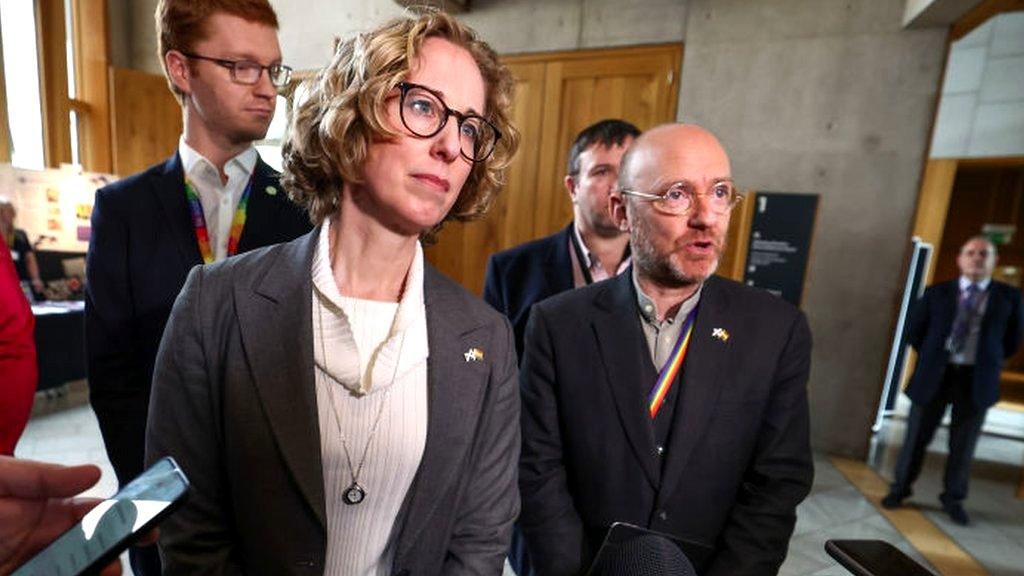Humza Yousaf to resign as Scotland's first minister
- Published
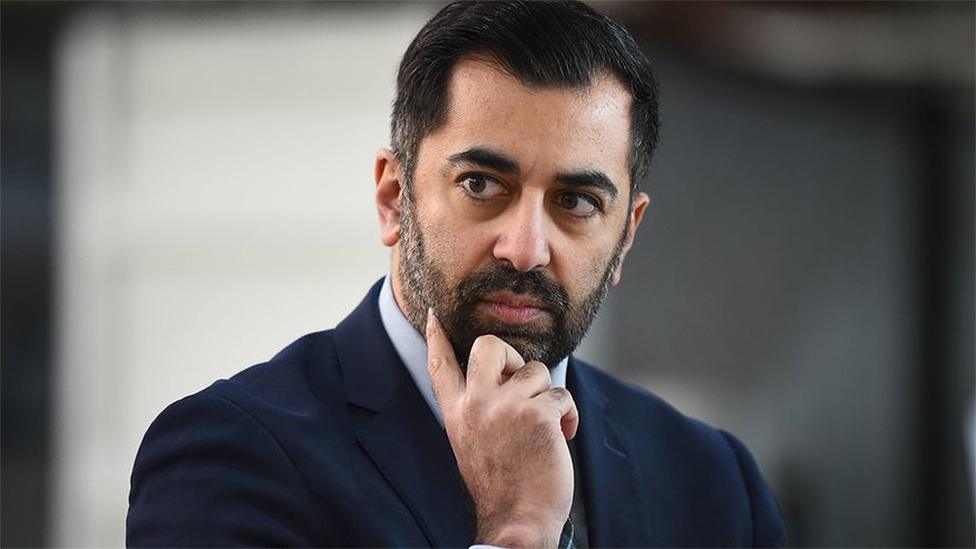
Scotland's first minister has been struggling to secure support to lead a minority government
Humza Yousaf is to resign as Scotland's first minister, the BBC understands.
He has arrived at Bute House in Edinburgh, the first minister's official residence, for a press conference at 12:00.
The SNP leader has been under pressure since he ended a power-sharing deal with the Scottish Greens last week.
Opposition parties in the Scottish Parliament had tabled two confidence votes - one in the first minister and another in the SNP government.
Mr Yousaf has been struggling to secure support to lead a minority government.
He had written to Scotland's opposition parties asking them to find "common ground" ahead of the confidence votes.
The first minister's decision to end the Bute House Agreement - the power-sharing deal with the Scottish Greens - followed a backlash over the SNP scrapping 2030 climate targets and gender policies.
The Greens accused Mr Yousaf of "selling out future generations" and had themselves been due vote on whether to remain in power with the SNP.
The SNP has 63 MSPs in the 129 seat parliament. If the seven Green MSPs vote against him, he is reliant on support from sole Alba party MSP, Ash Regan, to continue in his role.
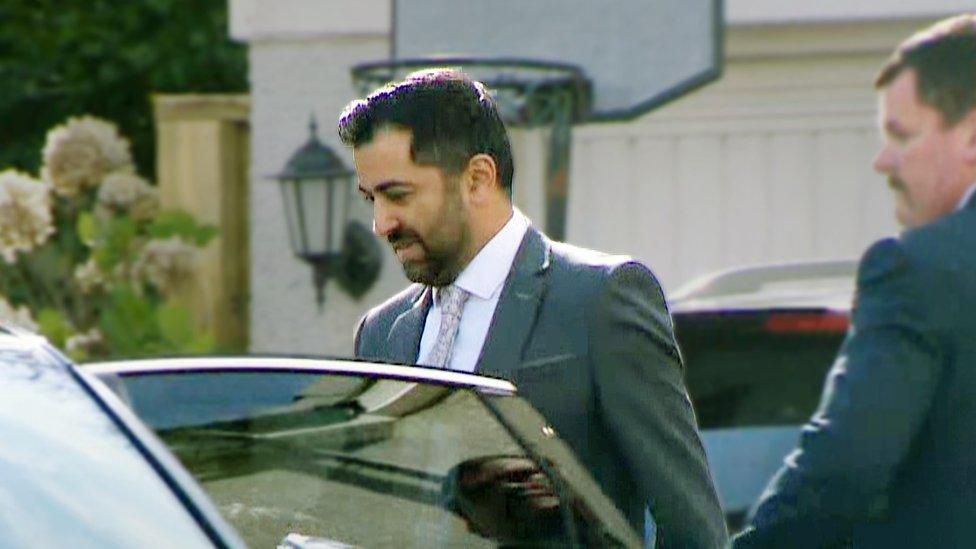
Mr Yousaf left his home in Dundee to travel to Bute House
Mr Yousaf, the MSP for Glasgow Pollok, has reportedly ruled out cutting a deal with Alba, a pro-independence party formed by former First Minister Alex Salmond after he broke from the SNP.
Alba's support would lead to a 64:64 tied vote in which case the presiding officer would be expected to vote to maintain the status quo.
The motion of no confidence in him personally is not binding, but if he lost he would come under intense pressure to step down.
If he lost the government vote, MSPs would have 28 days to vote for a new first minister or automatically trigger a Scottish Parliament election.
Scottish Labour has said the motion of no-confidence in the Scottish government would remain tabled even if Mr Yousaf resigns.
Douglas Ross, leader of the Scottish Conservatives, said Mr Yousay had "jumped before being pushed" by the no confidence vote which they had tabled.
In a post on X, external, formerly Twitter, he said: "We saw off Nicola Sturgeon and now Humza Yousaf. Now we work to remove this entire rotten SNP government from office."
Scottish Liberal Democrat leader Alex Cole-Hamilton declined an offer of talks with Mr Yousaf over the weekend and called for him to resign.
"Minority government works on trust, he has none," he wrote, external. "His priorities are not the people's priorities and he is clearly only motivated now by political survival."
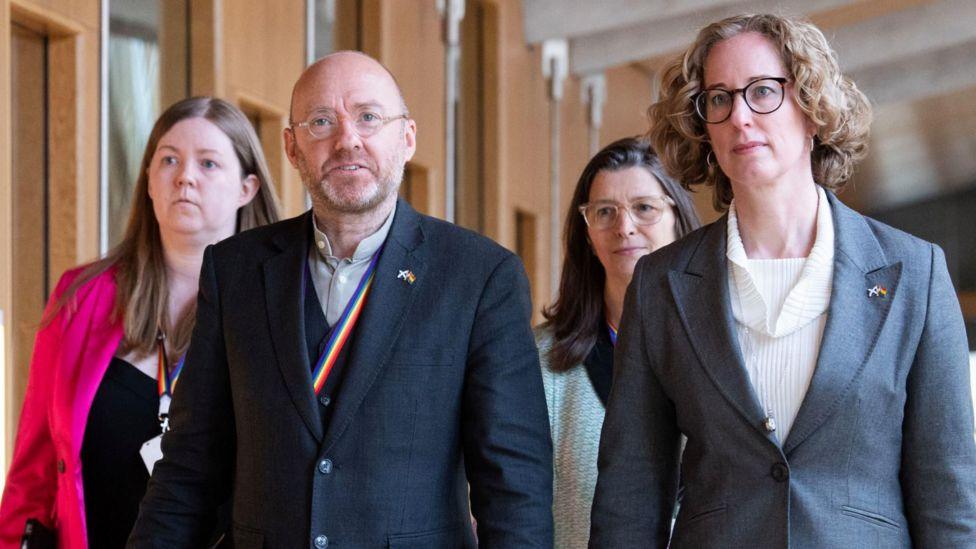
The Scottish Greens were due to meet decide whether to even accept Mr Yousaf's invitation
The Scottish Greens, who had been hoping to become the decision-makers on the future of the power-sharing deal, said Mr Yousaf had broken trust with their party but they "stand ready" to work with someone else.
In addition to the scrapping of the climate targets, some party members were also unhappy about the Scottish government considering implementing recommendations of the Cass Review of child gender services in England and Wales.
It warned that children have been let down by a lack of research and "remarkably weak" evidence on medical interventions.
Green party co-leader Patrick Harvie told BBC Radio's Good Morning Scotland programme that there was "distress" among members that children would not be able to get medical treatment to change gender after NHS Scotland paused puberty blocker drugs for under-18s.
Jen Bell, from the party's LGBT arm Rainbow Greens, called for a vote on the power-sharing agreement. This was scheduled to take place at the end of May.


Who might follow Humza Yousaf as first minister?
An obvious name is Kate Forbes. She narrowly lost to Humza Yousaf in the SNP leadership contest. While the Scottish Greens don't like her stance on a number of social issues, it's possible she could govern by doing deals elsewhere with other parties.
I'm hearing from the Scottish Conservatives that they could work with Ms Forbes in some policy areas, but would want to see independence take a back seat.
Another name doing the rounds is that of the former deputy first minister John Swinney. He's widely seen as an experienced, popular, safe pair of hands in the party. But he didn't want the job last time round. Have things changed?
Stephen Flynn, the party's Westminster leader, is a big name in the party. He can't be first minister from Westminster, but he could technically lead the SNP. Though a party leader at Westminster and a separate first minister at Holyrood could all get a bit complicated.
Other names being reported include the education secretary Jenny Gilruth and the health secretary Neil Gray.
- Published29 April 2024
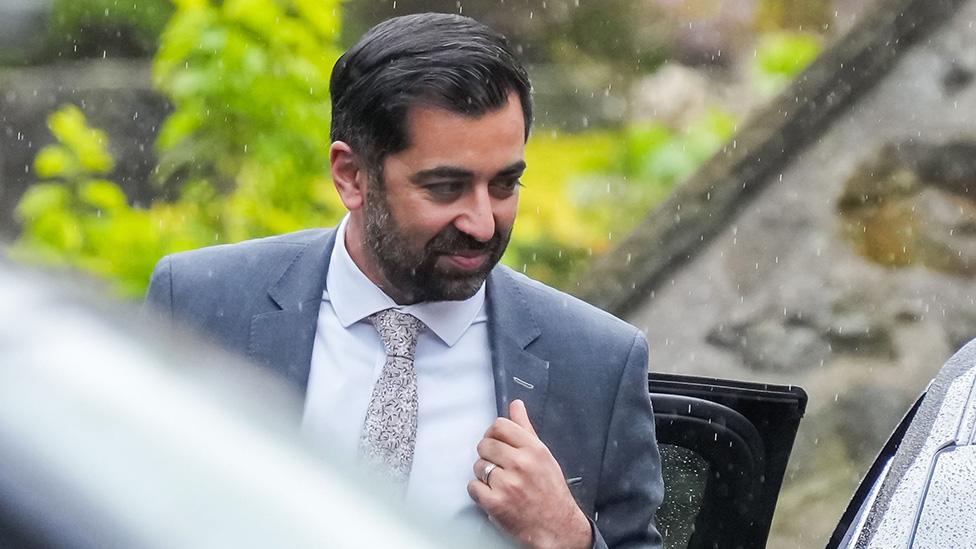
- Published28 April 2024
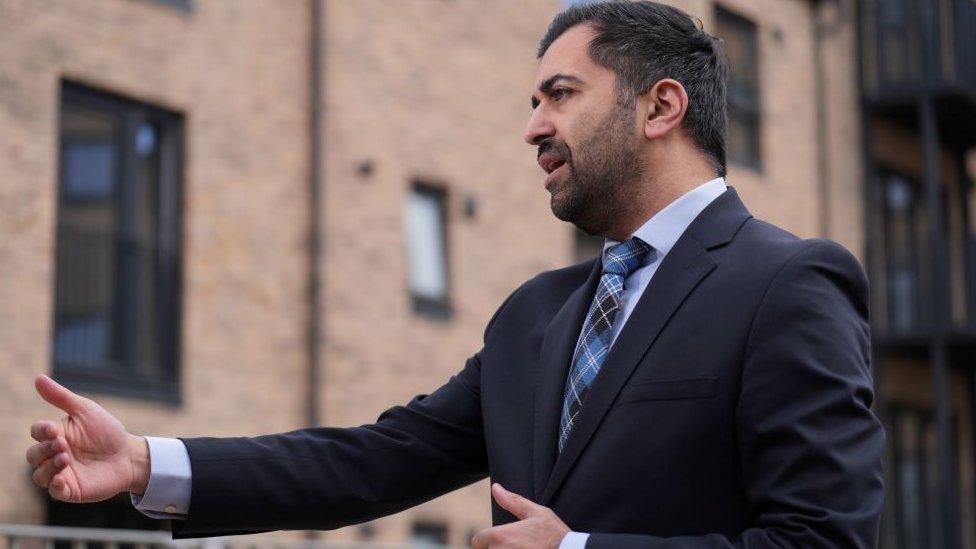
- Published25 April 2024
